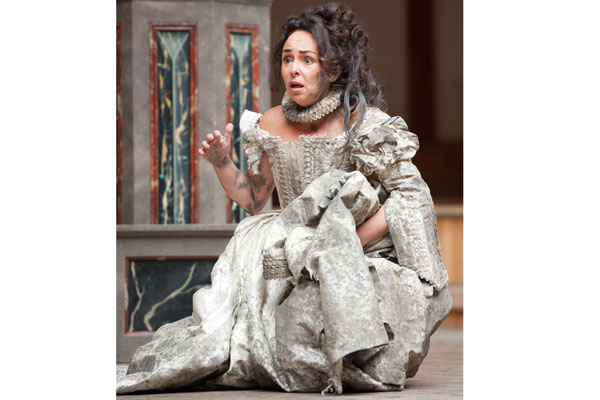Michael Frayn is a schizophrenic. His creative personality bestrides the English Channel. When he’s at home he writes traditional West End farces with amusing titles and plenty of jokes. When he sits at his European desk he comes up with dour, static, talk-heavy historical dramas with boring titles and no jokes at all. Democracy, written in 2003, is a classic Euro-bureau production. Frayn invites us to examine Willy Brandt’s stewardship of West Germany in the early 1970s. Willy is referred to throughout as ‘Villy’ which, for some reason, sounds even more silly than just Willy.
Chancellor Villy has a couple of problems. He’s an idealist and he wants the free world to embrace the eastern bloc and to give the misunderstood Soviets a big, warm, sloppy hug. His other problem is that his assistant, Günter Guillaume, is an East German spy. Yet this isn’t much of a snag for Villy. It’s just a quirky detail that adds a frisson of tension to one or two scenes. Otherwise it scarcely affects the action at all. The play, misdescribed as a thriller, offers no suspense or excitement and has no conflict of motives or intentions anywhere.
The story and the setting are laboriously set forth by jabbering woodentop actors who bustle in and out exchanging slabs of dialogue and adding lots of background guff. Villy, we’re told, is a charismatic visionary and a serial womaniser. But there are no women on stage. And there’s no vision and not much charisma either. The ending, with Villy losing power and East Germany imploding, is a little short of surprises.
Frayn’s love of Brandt is understandable in the context of the early 1970s. Take a glance around the world and see who else was in charge. Nixon, Brezhnev, Pompidou, Heath, Franco, Gaddafi, Pinochet and Mao. An epic list of crooks, mugs, murderers and muppets. And in that company, any democratic hack would look like a statesman of grace and principle. But I have to say I’d had my fill of Villy long before the interval. Many play-goers seized their chance and wandered off into the latest summer monsoon. Did I join them? Villy nearly. But no, I trudged back in, and folded down my chair, and watched as the rigid figures marched around the stage like mechanical men striking the hours on some ornamental town-square clock. A strange play, this. Loved by critics. Shunned by audiences. The auditorium of the Old Vic was pockmarked with vacant and vacated seats.
The Taming of the Shrew is often regarded as Shakespeare’s most hated play. But it’s certainly his most successful comedy. It has the advantage of being ludicrously simple rather than ludicrously complex. And it’s a million miles from the hey-nonny-nonnying irritations of his usual rustic efforts. Toby Frow’s energetic and often hilarious production treats the brutal storyline as a clash between two indomitable characters rather than as a mere battle of the sexes. It’s not a tale of fortitude crushed but of delinquency redeemed. The audience heartily agreed. A few spectators will always hiss at the closing scene when Kate abjects herself before her husband. (And a few hissed here as well.) But the vast majority whooped with delight as the lovers settled their differences and embraced.
Simon Paisley Day, as Petruchio, is one of the funniest comedians in the trade. He brings plenty of charm and larky physical slapstick to the role and he adds a dose of masculine steeliness too, a sense of guts and resolve that makes him a credible lover and a credible victor. Samantha Spiro, as Kate, is all claws and teeth and queen-cobra expectorations. At times she overdoes the fluff-on-the-needle acoustics and misses the character’s full flavour and depth. But her tenderness and sweetness at the end offer a sudden flash of magnificence. She’s convincingly supported by the spiky and imperious Sarah MacRae as Bianca.
But the honours go to Pearce Quigley as Grumio. I once heard a director call Quigley, rather casually, ‘a comedy genius’ as if it were a well-known fact. I now see the point. It’s not that Quigley is capable of altering the way humanity thinks. But he can easily alter the way the Globe laughs. This production aims for broad slapstick and boot-up-the-bottom physical comedy but when Quigley appears he tugs the action gently in the opposite direction. He stalls the pace to his lugubrious rhythm and adjusts the focus to his smaller and subtler palette of gestures. And he proves that a nimble comic intelligence can create even bigger laughs than pratfalls and multiple body pile-ups. A wonderful night out. And the ultimate proof of the show’s success is that the Japanese tourists, blinking and frowning at each other in bemusement, stayed for the full three hours.







Comments